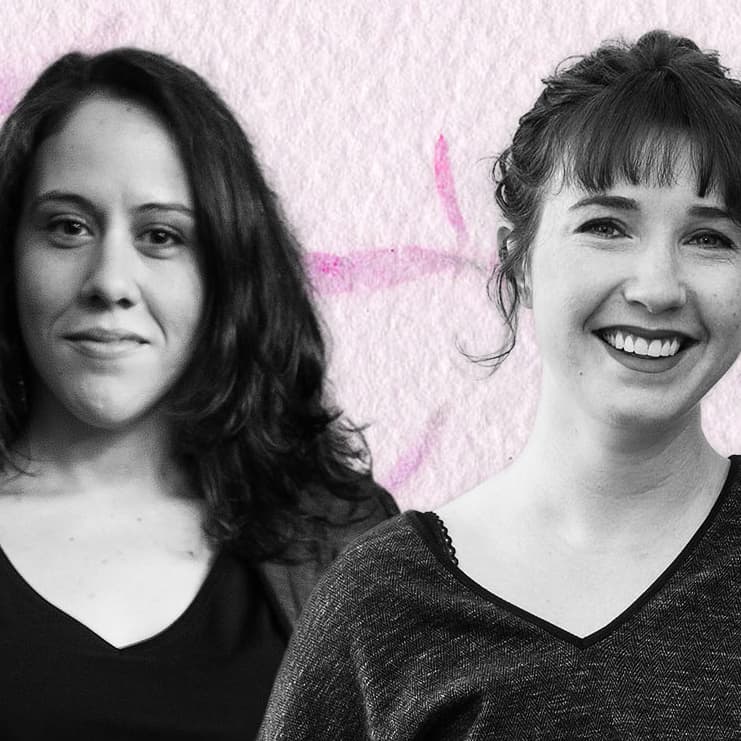Emerging Artists: Morgan Green and Taibi Magar
June 14th, 2017
This week, we’re highlighting some emerging artists in theatre and finding out how they view their careers and structure their lives. Morgan Green and Taibi Magar are two directors on the rise. Morgan Green is directing the Sharon Playhouse’s summer season, designed to give an emerging director a platform. She is also the co-Artistic Director of New Saloon, and was recently the Associate Director of Amélie. Taibi Magar is currently helming the immersive Master at Irondale Theatre Center, which features a play within an art gallery, and earlier this season, she directed the buzzworthy The Underground Railroad Game at Ars Nova. She holds an MFA from Brown/Trinity Rep. We visited Morgan at her apartment and Taibi at Irondale to talk about their lives as directors.
Taibi Magar
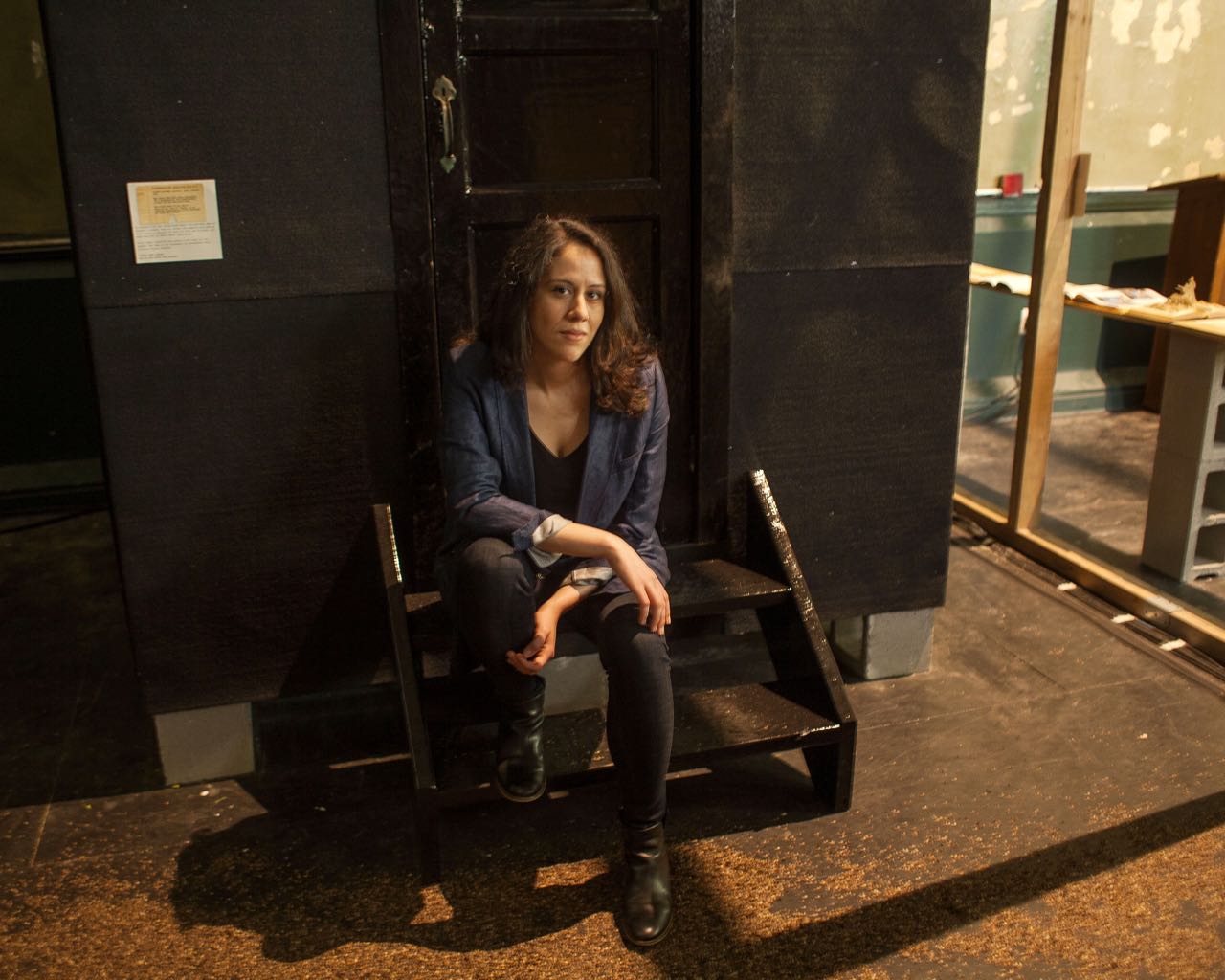
Photography by Marisa Chafetz
Given the nature of Master, can you walk me through your process of staging it?
We changed the entire concept of the show about ten days before rehearsal began, and that meant we had to entirely redo the set and everything was very rushed. We were never able to get to model or anything like that. We were really working hard every day trying to find out exactly what the space was, and it was very much in development. I knew that whatever I made in the rehearsal room was going to have to be fleshed out and explored in the space because the space was so in flux. Our first week of being in this room, I was just sitting with my designers and we were like, “It doesn’t work, it doesn’t work. This piece has to be done amongst the art.” Then we switched it all back and now it’s staged here [among the art]. I only had three hours to restage it. It was kind of amazing because by then I knew the text and the actors and I knew the text so well that it was a real gift to find those little discoveries of when the character happens to be talking about the relationship to his father’s work, he very organically was near it. One of my favorite ways to stage is very organically and very in the room. I was taught in my first directing class to pre-block, and I find that I’m actually much better when I have to be responsive in the room.
How do you balance the text work and working with the actors with the practical elements of this space?
I’ve been very lucky with this piece. These two actors are just true athletes. They’ve been through so many different conceptions of this play and ideas of this play. What I’ve found is that by going through so many versions, they’ve really taken ownership as true collaborators to this piece. When I laid the news on them that we were going to entirely restage it in one short afternoon before a preview, they completely leapt with me. I think they were nervous, but when it’s right, everyone knows it’s right. It’s this undeniable feeling where we were all taking a leap together, and within 60 seconds we all knew this was the best version. It’s a really great feeling to have collaborators in the room who are willing to take leaps with me.
You’ve done a couple of shows now that are non-traditional. What do you feel like has been the biggest directorial challenge with that?
I think it’s about teaching the audience how to watch without being pedantic, without being condescending. To really think of the pieces as events for the audience. I like making really challenging work. I like breaking the form every time I make a piece. If I don’t want to throw up, then I don’t want to do it. I have to do that in a way where the audience feels welcomed. I don’t like making hostile pieces that make audiences feel dumb. I want to empower audiences to go on journeys with the collaborators and myself. It’s all about an invitation. It’s just an invitation to an experience and a different way of thinking.
As a director, do you like things where you get it and you’re like, “Oh my God, I have no idea how to do this,” then?
If it doesn’t make me want to throw up, I don’t want to do it. I don’t do theatre to display what I know. I do theatre to investigate what I don’t know with a room full of really smart, brilliant people.
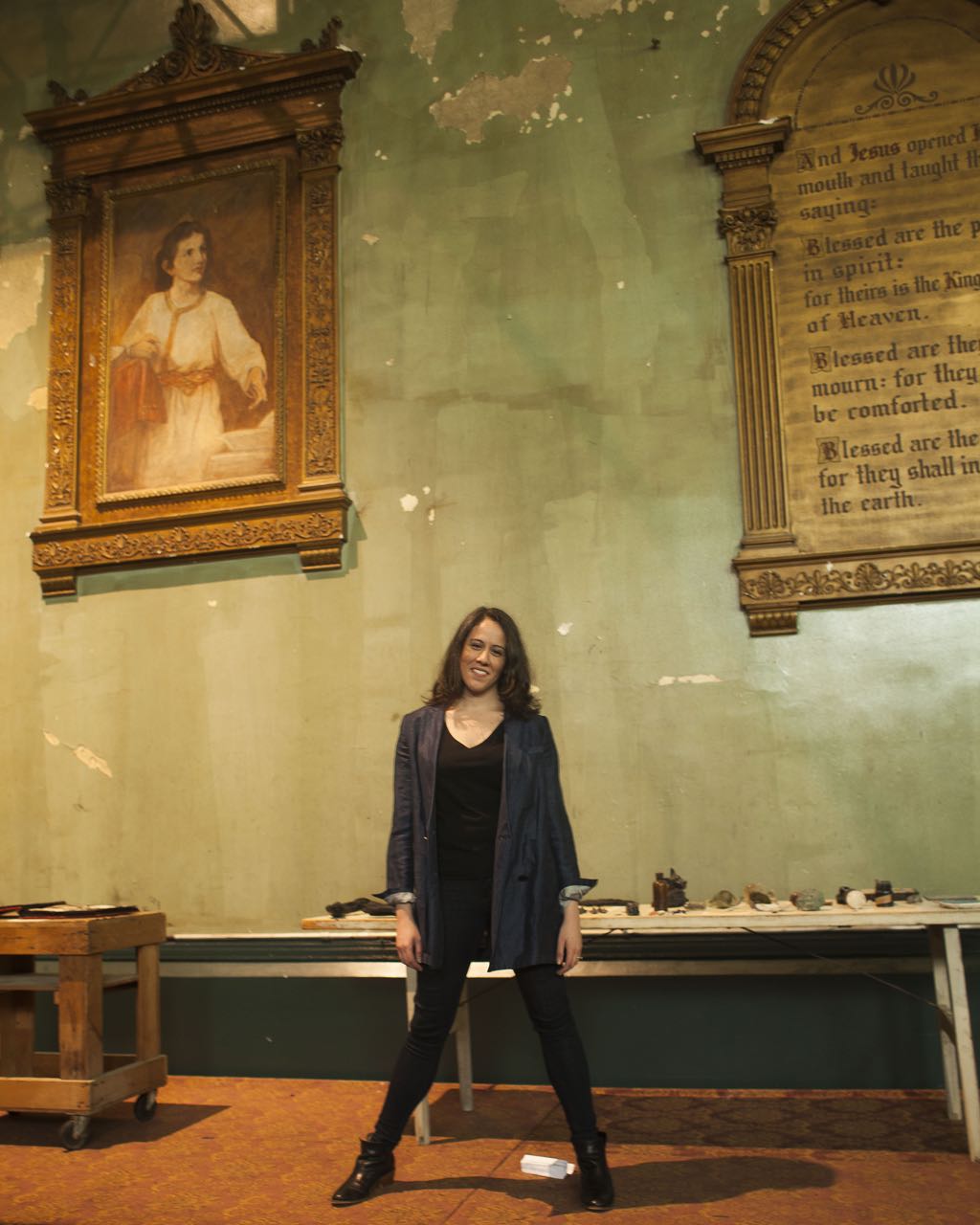
Has it been a challenge to have agency over choosing the work you get to do and who your collaborators are?
I went to graduate school at the Brown/Trinity MFA directing program. I really loved it there. I think amongst the many things it gave me was it gave me a very strong sense of who I am and what I’m interested in making. Even though that’s constantly evolving, there is a space inside my work that I know that I will always care very deeply about, which is the active awakening. I’ve been able, since grad school—and it’s certainly getting easier—to have a good command over the projects that I get to do. Is it difficult? Certainly. I don’t think I could live if every project that I did was vomit-inducing. It’s definitely a balance. To me, it’s always about the people that I’m working with. My mom would love nothing more than for me to win a Tony Award and I have to remind her almost on a weekly basis that that’s not my goal. For me, the work is about whom I get to make it with. That’s when I’m the happiest.
For instance, for this slot in the season, it came about as a number of other project conversations came. My agent and I were talking almost on a daily basis about which ones to take. Ultimately, he said, you’ve got to go with the one that excites you the most. This was the one that excited me the most because I had no idea what it was going to be, and so I just followed my instinct. It speaks to a lot of the things that I’m investigating in myself and in the world. I just try to lead with what I’m interested in. Sometimes that means a financial setback, but so far it has always been worth it.
I’ve been talking to directors about this idea that they feel, in today’s world, that they have to brand themselves as little bit—“I’m the director who does these things”—and whether they see that as a good thing, bad thing?
I remember suffering great anxiety about that as I was leaving graduate school and I had decided that I was best as a classical director. Then, within a year, that became monstrously untrue. I think now, having done Underground Railroad Game and this play, I do seem to be getting offers for two-person plays about race, which is exciting. I really love and am determined to always make work that is for social justice. I do take other projects. For instance, I was lucky enough to do Sarah Burgess’s Dry Powder at the Alley Theatre, and that’s nothing like this piece. Sarah’s play is an incredibly well-made play. That strengthens a certain dramaturgical muscle and language muscle inside of you that then I get to bring to this work, which is an entirely different world and entirely different voices.
Why did you think you were going to be a classical director and why did that change?
My first love had been Shakespeare. I encountered him first at ten years old. I saw Hamlet at Playmakers Repertoire in Chapel Hill, North Carolina. I was sitting in the front row and Polonius was killed right in front of my face. I freaked out. I had no idea what was happening, but I knew I loved it. It was an immediate attraction. It arrested me completely. I’ve always loved classics because I love rich, dense language. I was trying to work on new work and I’d occasionally find good collaborators, but I kept going back to classics because your voice is really free inside of those [plays] instead of in new work. What I found, ultimately, in new work, is that all of the great things that I learned from classics, which is structure and incredible dramaturgy and incredibly specific language and thought, is I could bring that to the table of a new work. I love the way that they feed off of each other for me now.
What do you think would make it easier for directors working to do their job and do the work they want?
It’s always hard. The biggest hole I see in terms of directors is access. I feel like what I see in our field is a lack of diversity. I spent my 20s in New York City really flailing around and having a hard time getting in the room. I applied to all the fellowships and never got them. I tried to be an assistant on all the fancy productions and could never find my way in the door. I also come from a rather financially challenged family, so sometimes I had to work three or four jobs just to maintain the bills. People who could take the summer off and pay $3,000 to be an apprentice at Williamstown Theatre Festival, I could never afford to do that. Those people who go through that deserve everything and they’re all really brilliant, but I do think the field of theatre requires mentorship and a certain level of financial sacrifice that not everyone is capable of doing. I think you leave out an incredible amount of diverse voices.
Can you expand a little bit about trying to get assistantships and the doors not necessarily being open?
I landed here right after graduation. I went to a school that didn’t really have a big name. It didn’t have a huge alumni connection, especially in terms of directing. I came, and I felt like I was swimming in an ocean by myself trying to find somebody else. I feel like when people come from the schools that have more established reputations, your resumes get looked at a little bit more closely. I think I also have taken a long time to find my own voice and find my own confidence. Getting in the room was hard. It’s tough. I do think there’s a limiting factor in terms of finances. I chose that school because I didn’t have to pay for it and I didn’t have to have student loans. Me not having student loans has been a key factor in terms of the longevity of my career. For me, it’s all about access. I wish for the field to provide more access.
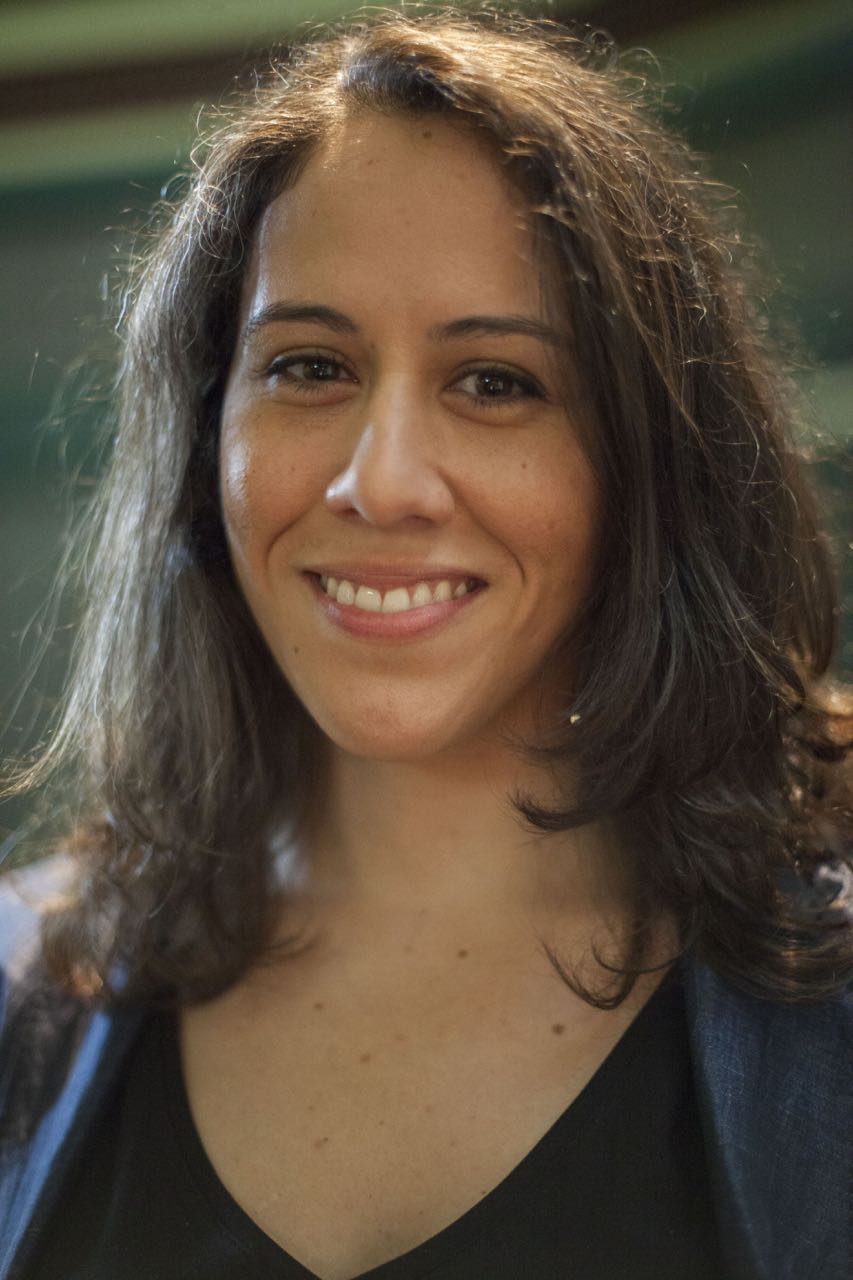
How do you structure your life?
I have never really wanted to run a theatre company because I find that all I want in life is to be in a rehearsal room with actors, or a tech with actors and designers. That’s really where I’m at my happiest. I’ve never wanted to do the administrative and self-marketing stuff. It’s funny, because now that things are busy, I do feel like I’m running Taibi Magar Productions, and yet I’m the only employee. It gets rather chaotic. All of the travel is really intense. I’m having the career now that when I was 25 I thought was very sexy: tromping off to some city and staying in a hotel and directing a little play and then going to the opening party. It’s actually deeply unsexy after a while. Maybe it’s that I’m older. It gets exhausting. I did three shows in a row out of town basically back to back, and I kept forgetting my toothbrush at the last place or at home. The hardest thing for me is finding the time to prep a show. As things get busier, my prep process is really a very important part of my work. Finding the time for that in graduate school, it was laid out for you. I’ve just been really intense on my calendar about making sure when I take a job, I know exactly when I can be prepping it. Because I need space to dream. I really need space to really dig into the text, really work on the text, and space after that to go on a YouTube journey or go to a museum or read a book.
In your career thus far, have you felt like there are gender issues that have affected you?
Yeah, absolutely. I don’t think it can be understated how hard it is to be a woman as a director. I think I am constantly in situations where I’m like, “That person wouldn’t have said that thing if I were a man.” It’s just like racism. I witness acts like that in our field all the time. That can be very difficult. I take a moment to acknowledge it. I haven’t yet figured out how to lead a conversation around it. I try to just be present and I try to embolden the people of color and the females around me. I’m a listening director. When I know what I want, I know what I want. When I don’t know what I want, I don’t know what I want. I try to be as confident in the things that I don’t know as the things that I know. When I don’t know something, I reach out to my collaborators. I try to lead with the questions. I think sometimes people feel like, “She doesn’t know what she wants.” It’s like, “Well, if I was a man you might say, ‘She’s so collaborative.’” I try, in each moment, to just embrace who I am and provide opportunities for women and people of color in terms of the power that I have in hiring. I try to stay confident in my process and in my voice and confident in my questions.
Do you have a dream project?
I have a show I’ve been in conversation with for a very long time that is a dream project. I’m excited to be able to start working on it this summer. A few years ago, I started talking with Rick Dildine, who’s the Artistic Director of Shakespeare Festival St. Louis, about a production of Titus [Andronicus] that he was brewing with this incredible orchestra called Alarm Will Sound. Shortly after that, the list of translations from the OSF came out—they commissioned playwrights to do translations of Shakespeare’s work—and I saw Taylor Mac paired with Titus Andronicus. I called Rick and I was like, “That’s the one I want. Can we have that one?” That was literally two years ago. It’s been a long conversation and a long process. We just found out we’re actually going to be able to do an Orchard Project Residency. I have no idea what will come of it. The most exciting thing in the world to me is who I get to be in the room with—getting to be in conversation with Taylor Mac, who is someone that is an incredibly important artist in our field, and Alarm Will Sound. I’m so excited about the chemistry amongst the two of them. It’s a dream project. I love putting exciting people in a room together and seeing what’s going to happen.
Morgan Green
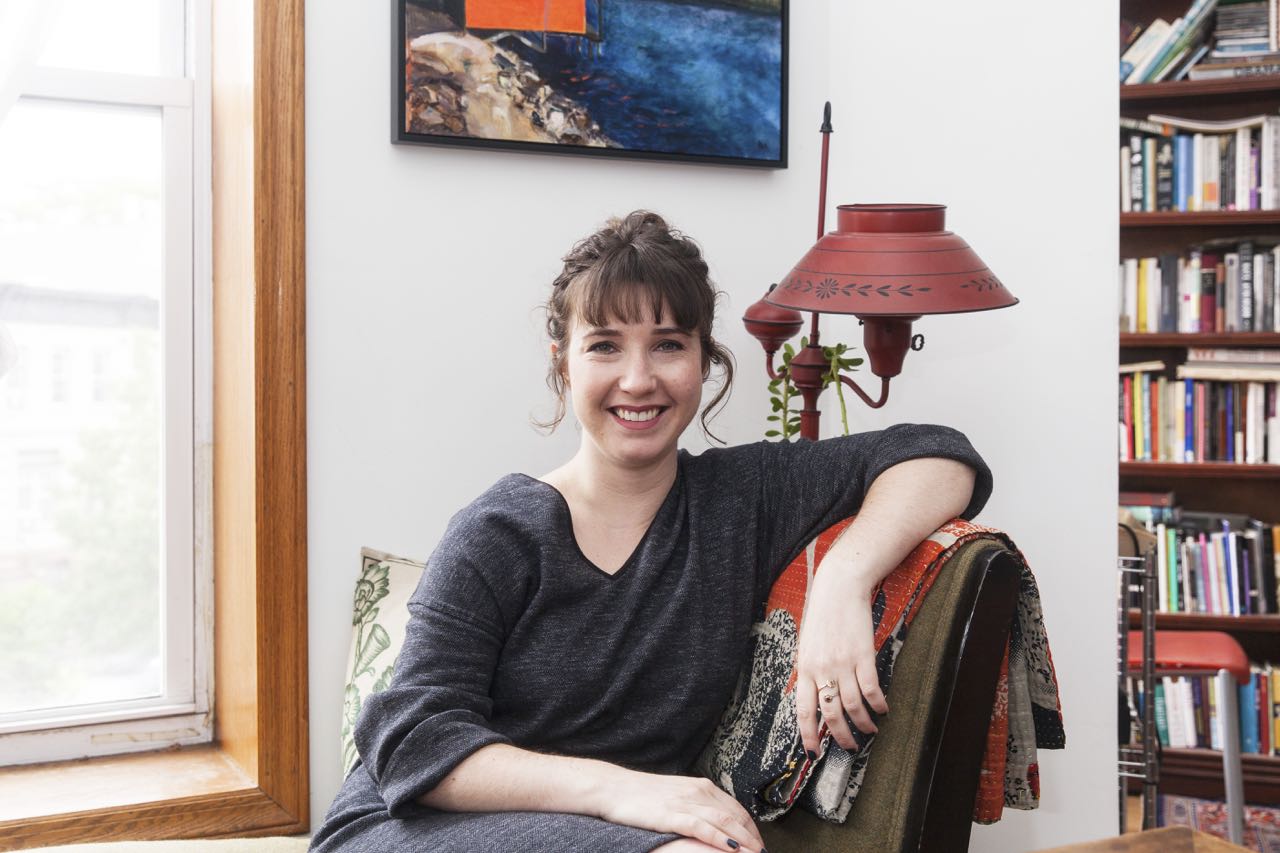
Photography by Jessica Nash
You’re the Resident Director at the Sharon Playhouse this summer, and it’s their first season doing that. Can you tell me a little about what you’ll be doing?
I’ve been invited to direct three shows there this season. I’m directing Minor Character, which is an adaptation of Uncle Vanya that I made with my theatre company New Saloon, and then Far Away by Caryl Churchill, and then The Music Man by Meredith Willson. This the first summer that they’re doing something like this—having one director do all three shows in a season. It’s also the first time I’ve heard of anything like this happening—one director getting to do three back-to-back projects that they select. So it feels like a pretty special opportunity.
How did you decide which shows to do?
I wanted to start with something by my theatre company New Saloon, and this show, Minor Character, was in the Under the Radar Festival in January. It only got to have two performances, so we really felt like it had more life to live, and so this was a perfect opportunity to start the summer with something that we’ve been developing for a very long time and that we’d love to share more widely. So that seemed like a shoe-in. Then the second piece, Far Away, is a play that I have wanted to direct since I first read it in college, and I wasn’t really sure where else I would have this kind of opportunity, so I jumped at the slot to be able to do this play. I love Caryl Churchill, and this play in particular I find so haunting and funny and powerful, so I’m just excited to get to do it. Johnson [Henshaw, Artistic Director of Sharon Playhouse] had wanted the final slot to be a musical, so The Music Man is one of the few musicals that I grew up with and have a deep, nostalgic connection to. Thinking about the story of The Music Man right now, it felt like the right choice.
When you were thinking about which pieces to choose, were you also thinking about the Connecticut audiences?
I think Johnson’s whole idea behind this was to bring something to Connecticut that the audiences perhaps are not used to. To bring something a little bit edgier and more experimental. When he first sat down with me and talked about this, he was talking about how directors in London and in Europe have opportunities to tackle classics and create new work, and how in New York we are so playwright-focused that the opportunity doesn’t come up very often. So he wanted it to be something different, and I feel like I have the space to rise to that occasion and see how people respond. I am thinking about the audiences, and I want them to enjoy themselves in this beautiful summer theatre location, but I also want to challenge them and make them question things they hadn’t previously thought about.
Do you find that the process is different because you’re doing an entire season and working in a way that a lot of young up-and-coming directors don’t get to do because in NYC there’s a lot of self-producing?
Yes, I feel like I’m having this experience of tapping into a kind of creativity that I knew I had, but has often been shrouded in the worries of self-producing and fundraising, and basically managing a theatre company. With this gig at the Sharon Playhouse, I’ve really been able to be a director, and that feels different. The way I’m taking in information and coming up with ideas and communicating them feels a little bit freer because I don’t have as many of the more practical worries on my plate as I am used to having. It’s really exciting to find out what else will come up. I feel like the necessity of creativity that this summer is giving me has been quite fruitful. I think because of the way that the summer is planned, I really am diving into these three different creative worlds, and I’m also a multitasker, so having three projects at the same time, it feels good to be jumping into these three different worlds back and forth. There’s a lot of imagery and a lot of inspiration that is sort of colliding.
Since you brought up imagery and you mentioned earlier that your mother is a painter, are you visual in your work?
I am. I have the most clarity in composition, I think. Then sometimes I can forget to find the detail within the composition. I am more aware of that now—my strengths and weaknesses—but I think instinctually, images and compositions come first, and then filling in the details and connecting the dots come after that.
Are you more drawn towards stuff where you have an immediate instinct of what it is and how you would do it, or do you like things that are like, “I have no idea how to do this, but I find it interesting”?
The second. When I read Far Away, for example, it’s the kind of play that you read, and as soon as you finish it you kind of go, “What?” And then you start again at the beginning. The same with The Music Man. It’s so iconic in the way that it’s done in the movie. It’s hard to break free. So I think I’ve set myself two pretty big challenges in terms of coming up with something new, and I always come from a place of, “I have no idea what I’m doing, but I’ll figure it out.”
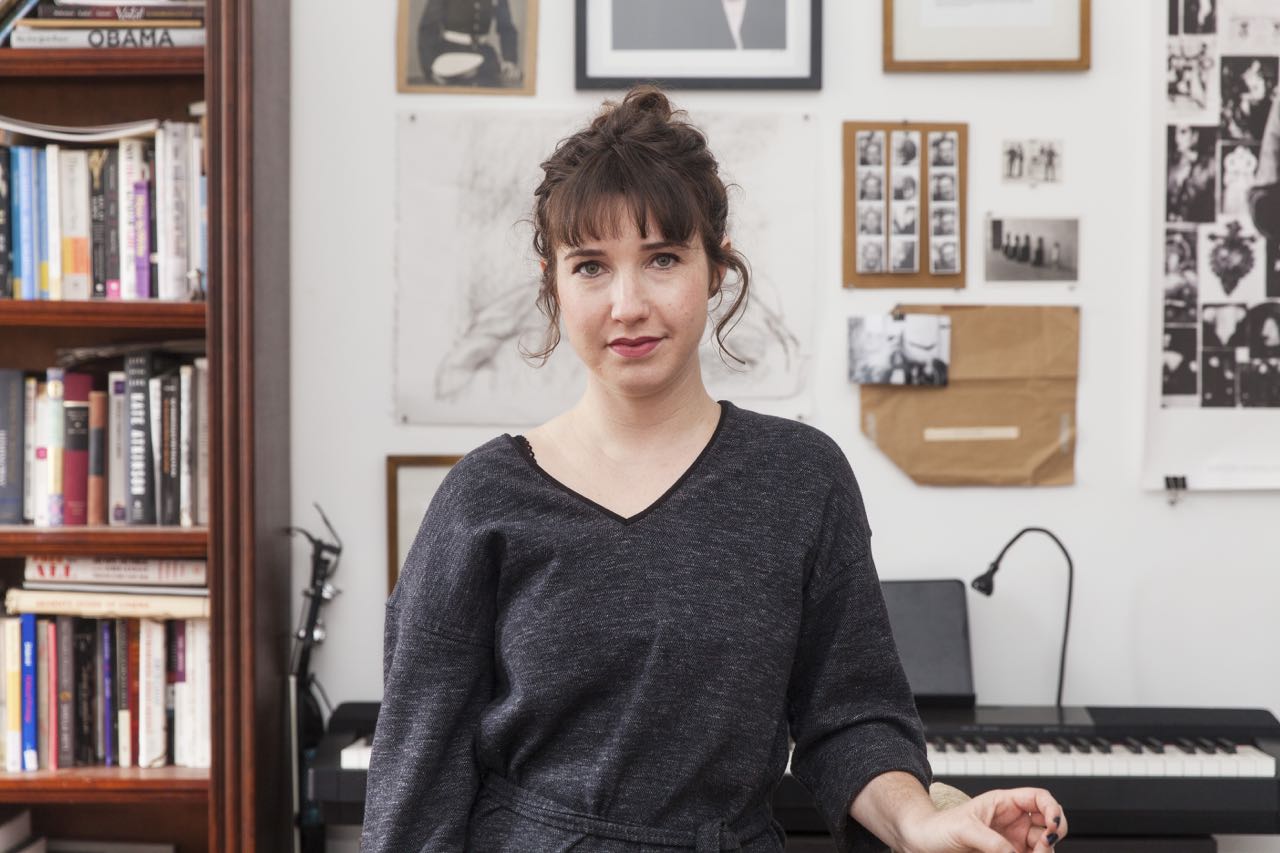
I was wondering if would tell me a little bit about your company, New Saloon, and the work you do with it?
New Saloon is comprised of myself, Madeleine Wise who’s primarily an actor, and Milo Cramer who is primarily a playwright. The three of us have created many new plays together. We created Minor Character together, and we also worked with a dramaturg, Elliott B. Quick, who was with us every step of the process for this project in particular. We got to New York and wanted to be making theatre and weren’t getting opportunities to do so, so we just made them ourselves. That was the approach. We didn’t necessarily set out to make a theatre company, but we found that it was the most effective way to be able to keep making work, and we were fortunate enough to get a few artist residencies. We had the Mabou Mines Resident Artists Program, and the Lower Manhattan Cultural Council Workspace Program, and being a part of those two communities of artists was a huge deal for all three of us to grow as individual artists and as a company. We all went to school together and we each have very specific aesthetics, and we don’t always agree on what we are making. If there was one thing that all three of us can agree on, that meant it had some spark to it. So that was kind of the whole guiding principle of New Saloon.
What do you think would make it easier for emerging companies to exist and do work?
Space is a huge resource and it’s expensive, so finding free space, whether it’s in a church basement or a friend’s garage or after hours at a theatre or somewhere that nobody’s using. If there was somehow more space available. That was really important for us at the beginning, to have space to work and to take ourselves seriously as artists, and separate our work from our home lives and social lives.
The experience of being an emerging director in the city seems hard. What for you was the thing that was most surprising like, “Oh, this was a challenge I did not see coming about pursuing this as a career”?
I think as an emerging director it can be easy to fall into doing work that you don’t like. Directing plays that you don’t necessarily feel passionate about or passionate enough about, or doing things because you feel like you should, like 10-minute play festivals or 24-hour theatre festivals. There’s all of this stuff that you feel like you should be a part of so you can keep working. On one hand, I think you should, and you learn things by doing those things, and I did a lot of them, but I think that pressure can be really exhausting and sometimes misguided, and it’s more important to work on something you care about than to be constantly visible and participating in whatever that’s available to you. Having more of an independent practice can feel unnatural in New York because there’s such a bustling community, but I think it’s important to find solitude and find an independent voice.
Do you find that branding has become a thing for director? Is there a pressure to be like, “I’m the director who does X”?
Yes. I think there is that pressure. All the young directors that I know—and I have a lot of really great director friends who I love a lot—we are finding our voices. We are figuring out what type of work we want to be making, and it can be easy to categorize. It’s like, “I do funny plays,” or, “I do plays with female protagonists,” but I think that those are all too limiting. But we are asked to make those kinds of statements all the time in our applications and in selling ourselves. So on one hand, I just think of it as part of the job. You need to make your work assessable and understandable to someone who could potentially hire you. That statement or that attempt is not the work itself. It’s some sort of reduced summary of the work. It’s challenging, but sometimes you just have to do it.
What’s something you think would make it easier for you and your peers to do the work that you want?
It’s not that often that I even get to go see director-driven work in New York. Ivo van Hove comes through BAM every once in a while, or to New York Theatre Workshop. Danielle Fish’s work happens once a year, maybe. There are other companies who I love who are making work in a tradition other than the playwright-driven, like 600 Highwaymen. But if there were more places to see that kind of work, and if that were more mainstream, then that would clear the way for more younger directors to be making director-driven work.
What do you find has been the most helpful for you in your career thus far?
I have received a great deal of mentorship from directors. JoAnne Akalaitis was my teacher at Bard and continued to be my mentor in the Mabou Mines residency, she mentored my company, and she’s also my friend. I just worked for Pam MacKinnon as her associate director on Amélie on Broadway, and so I got to observe her leading a Broadway-scale show. I think that experience will stay with me and taught me more than I even realize now about leadership and about storytelling. I have assistant directed for other directors, and that has given me a lot of tools in the rehearsal room to face different kinds of challenges, and so probably that’s been the most helpful thing.
In your career thus far, have you felt like there are gender issues that have affected you?
I think that women directors who are older than me have cleared the way in a lot of ways that I am grateful for, which makes it easier for me to be taken seriously as a woman director. I have found that sometimes working with older, white male actors, I’ll find someone who doesn’t feel comfortable taking direction from me and it’s instantly apparent, and it’s a really tricky hurdle. I do see huge problems in gender equality all around me all the time, and it feels like a huge problem that I try to address in my work, because it is something that I feel passionate about. That said, I personally feel like I’ve had a really fortunate time of it as a female director, and I feel grateful for that.
After this, do you have like a dream project that you want to do?
I have a real project that’s happening that’s also a dream project. It’s a play by Milo Cramer called Cute Activist that’s going to be at The Bushwick Starr in January, and I’ve been working with Milo on this play for a long time now. It’s about activism and being an effective member of society, and apathy, and white privilege, and gender. The entire play changed and has been rewritten since Trump was elected, so it feels like a piece of work that I am intimately involved with and connected to that is alive and urgent. I’m really excited to get to do that play with Milo in January. I’m interested in film, and I’m interested in film in performance, and there are a lot of artists working in that medium using film in performance. I have some ideas I want to try out if I’m given the opportunity. That’s sort of a dream project.

